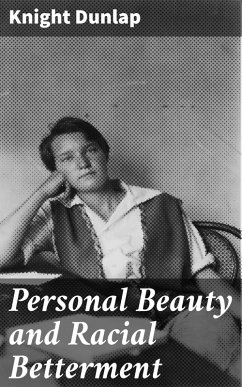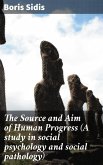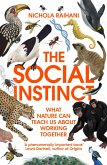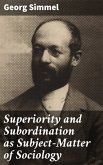In 'Personal Beauty and Racial Betterment', Knight Dunlap explores the intricate relationship between physical appearance and societal perceptions of race. Dunlap delves into various scientific theories and social constructs that have influenced the way human beauty is defined and appreciated, offering a comprehensive analysis of the impact of these standards on racial dynamics. Written with a mix of academic rigor and accessible language, the book provides a thought-provoking examination of beauty ideals and their implications for racial identity in the early 20th century. Dunlap's work stands out for its interdisciplinary approach, combining insights from psychology, anthropology, and sociology to present a nuanced understanding of the complex interplay between personal aesthetics and racial prejudice. Knight Dunlap, a prominent psychologist and social critic of his time, merges his expertise in these fields to offer a compelling analysis of a topic that continues to resonate in contemporary discussions on race and beauty. 'Personal Beauty and Racial Betterment' is a must-read for anyone interested in the intersections of beauty, race, and society, shedding light on the enduring influence of physical appearance on social hierarchies and individual identities.
Dieser Download kann aus rechtlichen Gründen nur mit Rechnungsadresse in A, B, BG, CY, CZ, D, DK, EW, FIN, F, GR, H, IRL, I, LT, L, LR, M, NL, PL, P, R, S, SLO, SK ausgeliefert werden.









